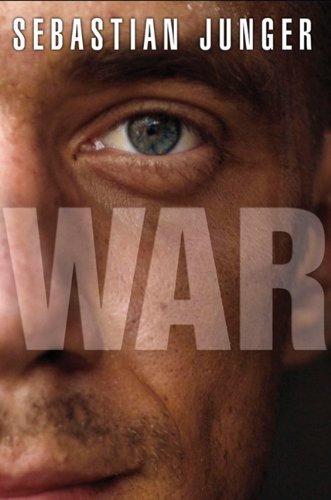
But a few weeks ago just before New Year’s, my husband Dyfed Edwards (who writes as Thomas Emson) and I went to Anglesey in Wales to visit his family. There is no Internet connection at the home of my parents-in-law, so I always pack plenty of books and somehow, War made it into the stack. Once I’d made my way through several of 2011’s unread Harper’s Bazaar magazines, I picked up War and tried again.
War is the result of five trips Junger made to the Korengal Valley in eastern Afghanistan between June 2007 and June 2008 for Vanity Fair. He was embedded with a US army platoon and strictly speaking the book is non-fiction. But to me, it is also a memoir of his experience of being as close to war as a civilian can get.
I have a read more than a dozen non-fiction books on the war in Afghanistan but none of them are like this. Books about fighting are often like fighting, fast and frenzied. But in War, Junger gives the characters, the action and the scenery room to breath. He doesn’t shy away from the long stretches where the soldiers have nothing to do.
‘The men ran out of things to say about three months ago, so they just sit around in a mute daze. One day I watched Money come out of the hooch, look around, grunt, and go back inside for another three hours’ sleep. A summer shower comes through, briefly turning the air sweet and pungent, but the raindrops are small and sharp as needles and do almost nothing for the heat. “I used to live a thousand feet above sea level, and we’d find seashells in the rocks along the side of the road,” O’Byrne finally says. No one answers for about five minutes.’
I find soldiers and their extreme way of living absolutely fascinating. I am intrigued by their psychology. Not the killing but their willingness to die for each other. And how their altruism overrides their survival instincts or serves the survival instinct of our species long-term, even if it means individual soldiers die.
The blurb says Junger’s objective was simple and ambitious: to convey what war actually feels like. For me, he did this elegantly. I’m so glad I picked it up a second time.
Do you read about war? Which books, which wars and why?
